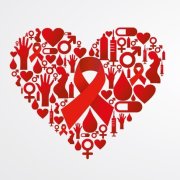New drugs, new treatment strategies – an overview
22 September - 15:00-15:20
Treatment is universally recommended for all persons living with HIV regardless of CD4 count. In the absence of any definitive cure/remission strategies, this treatment will be life-long. Currently, HIV infection can be controlled long term with potent, safe and convenient antiretroviral therapy that leads to prolonged healthy survival in our patients. With earlier initiation of antiretroviral therapy and considering the potential for several decades of suppressive antiretroviral therapy, management of patients is evolving. This session will review new strategies such as reducing drug burden and using new formulations such as injectable agents. It will also provide a summary of the pipeline of new drugs.
Speaker: Dr Nicola Mackie (UK)
What’s new in opportunistic infections
22 September - 15:20-15:40
Improved access to Antiretroviral Therapy has led to a dramatic decline in the incidence of Opportunistic Infections (OI’s) in People Living with HIV (PLHIV). However, OI’s do occur amongst PLHIV diagnosed/presenting to care late with advanced HIV disease or in those failing ART. Tuberculosis (TB) is one of the major causes of morbidity and mortality among PLHIV. Preliminary studies demonstrate the safety and effectiveness of short-course TB treatment for both drug-susceptible and resistant TB. Further studies are needed in PLHIV accounting for drug-drug interactions and safety with concomitant ART. Disseminated histoplasmosis is an important differential diagnosis amongst PLHIV with advanced immunosuppression presenting with multi-system illness. Short course 7-day Amphotericin B and Single high-dose liposomal Amphotericin B-based regimen are promising strategies for the management of HIV-associated cryptococcal meningitis, especially for Middle- and lower-income countries. The impact of being on co-trimoxazole prophylaxis influences the choice of regimen to treat uncomplicated falciparum malaria. It is recommended to avoid the combination of artesunate + sulfadoxine-pyrimethamine in this scenario. Finally, recombinant herpes zoster vaccine is recommended for all PLHIV aged > 50 years.
Speaker: Dr Sanjay Pujari (India)
Malignancies in HIV
24 September - 15:15-15:30
Cancer, both AIDS-defining or non-AIDS-defining cancers (NADCs), has become the leading cause of death in people living with HIV, associated with an increase in the incidence of some NADCs compared to the general population, including lung cancer, hepatocellular carcinoma, head and neck cancers, anal cancer, and Hodgkin lymphoma. The incidence of NADCs should be expected to increase further as the PLWH population continues to age. This session will provide an update on epidemiology and the identification of risk factors to determine the most appropriate prevention and screening strategies in this population. Cancer management in HIV patients is based on general recommendations, with specific attention to co-morbidities or drug interactions and some special considerations for cancer treatment in these patients will be discussed.
Speaker: Prof. Stéphane De Wit (Belgium)
The ‘forgotten’ problems: mental health/pain/sleep problems (commonly reported in the clinic but often ignored in research)
24 September - 15:30-15:45
The published literature commonly includes reports of studies that aim to describe the aetiology and risk factors of a number of co-morbidities that occur in those living with HIV, including cardiovascular disease, cancer, liver, and renal disease. However, these may not be the co-morbidities that are of greatest concern to people living with HIV who, instead, identify symptoms of pain/discomfort, fatigue/sleep problems, memory loss/cognition, and mental health problems as being of greater concern. Despite this, published research into the causes and risk factors for these problems is limited. In this presentation, I will discuss the potential reasons for this apparent ‘disconnect’ and will summarise the latest published data on these ‘forgotten’ conditions.
Speaker: Prof. Caroline Sabin (UK)
Configuring services to manage an ageing population
24 September - 15:45-16:00
Living with HIV can present challenges for patients, at any age. But older people with HIV may face new or different challenges. People living and ageing with HIV share many of the same health concerns as the general population aged 50 and older: multiple co-morbidities and polypharmacy in addition to alterations in physical abilities and cognition. Therefore, conditions such as cardiovascular disease, diabetes, renal disease and cancer, caused by an interplay between multiple factors including chronic inflammation and HIV can become more prominent. With changes in modality and frequency of follow-up of individuals with HIV we also need to consider how we see older patients in clinic who may be affected by additional social vulnerabilities such as stigma and social isolation. This lecture will therefore present a holistic approach to managing an ageing HIV population.
Speaker: Dr Yvonne Gilleece (UK)
The other synopses will follow shortly.

20th European AIDS Conference
15-18 October 2025 Paris, France

EACS Guidelines updated
The EACS 12.1 and the app are available for free on


Educational Programme
Training and educating the next generation of clinicians and researchers is an EACS core activity.

EACS Resource Library
Access all scientific content of EACS core activities! (members only)

Interim Guidance
Interim Guidance on the Use of Statin Therapy for the Primary Prevention of Cardiovascular Disease in People with HIV